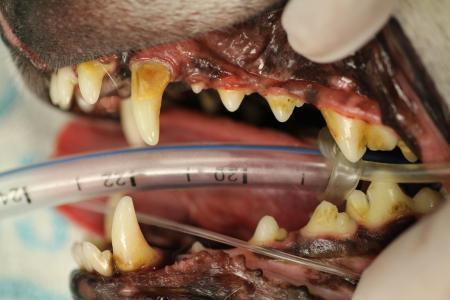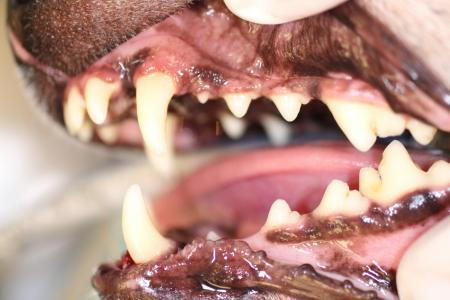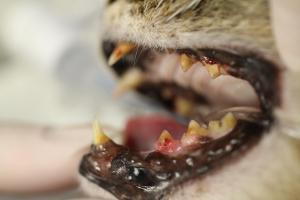February is Dental Health Month
- posted: Feb. 09, 2016


Patton Veterinary Hospital Celebrates Dental Health Month in February
Did you know that up to seventy-five percent of dogs and cats have some degree of dental disease by age three? That’s a lot of pets in York County with bad breath and sore mouths! Doggie breath is not normal and may indicate infection of the teeth or gums.
Surprisingly, most dogs and cats with dental disease will continue to eat and drink normally; however, some will experience symptoms like drooling, pawing at the mouth, refusal to eat dry food (kibble) or weight loss. Even if your pet does not show any outward signs of dental problems, he may be in pain if he has loose teeth or infected teeth or gums. Dental infections not only cause pain, but infection could enter the bloodstream and spread to the kidneys, heart and other organs causing permanent damage.
What can you do to keep your pet’s mouth healthy? It turns out, the best way to keep your dog’s or cat’s teeth in good shape is to brush them every day just like you would your own teeth, except you should use special non-fluoridated pet toothpaste. The toothpastes come in pet-friendly flavors like beef and poultry. Aim to brush at least three times a week--less often provides no clear benefit. It also helps to start brushing early—puppies and kittens are much more receptive to regular brushing than an adult pet experiencing a toothbrush for the first time. If your dog or cat does not tolerate brushing, other dental products like rinses, chews or water additives can still help keep teeth and gums healthy.
Almost all pets need periodic professional dental cleanings to stay healthy, even with diligent home care. Pets do need to be anesthetized to properly clean their teeth. This may sound risky, but the risks from dental infection are far greater than any risk from anesthesia. Pets with severe gum disease or with loose or broken teeth need to have their teeth assessed and cleaned, so any damaged teeth can be treated or extracted.
It is so important to have your pet’s mouth examined by your veterinarian every six to twelve months and to have both professional cleanings and home dental care with brushing or other dental care products performed on a regular basis. Taking care of your pet’s teeth will help him or her live a long healthy life and allow you to enjoy sweet doggie and kitty kisses instead of stinky breath!
This blog brought to you by the Patton Veterinary Hospital, serving Red Lion, York and the surrounding communities.

Location
Patton Veterinary Hospital
425 E Broadway
Red Lion, PA 17356
